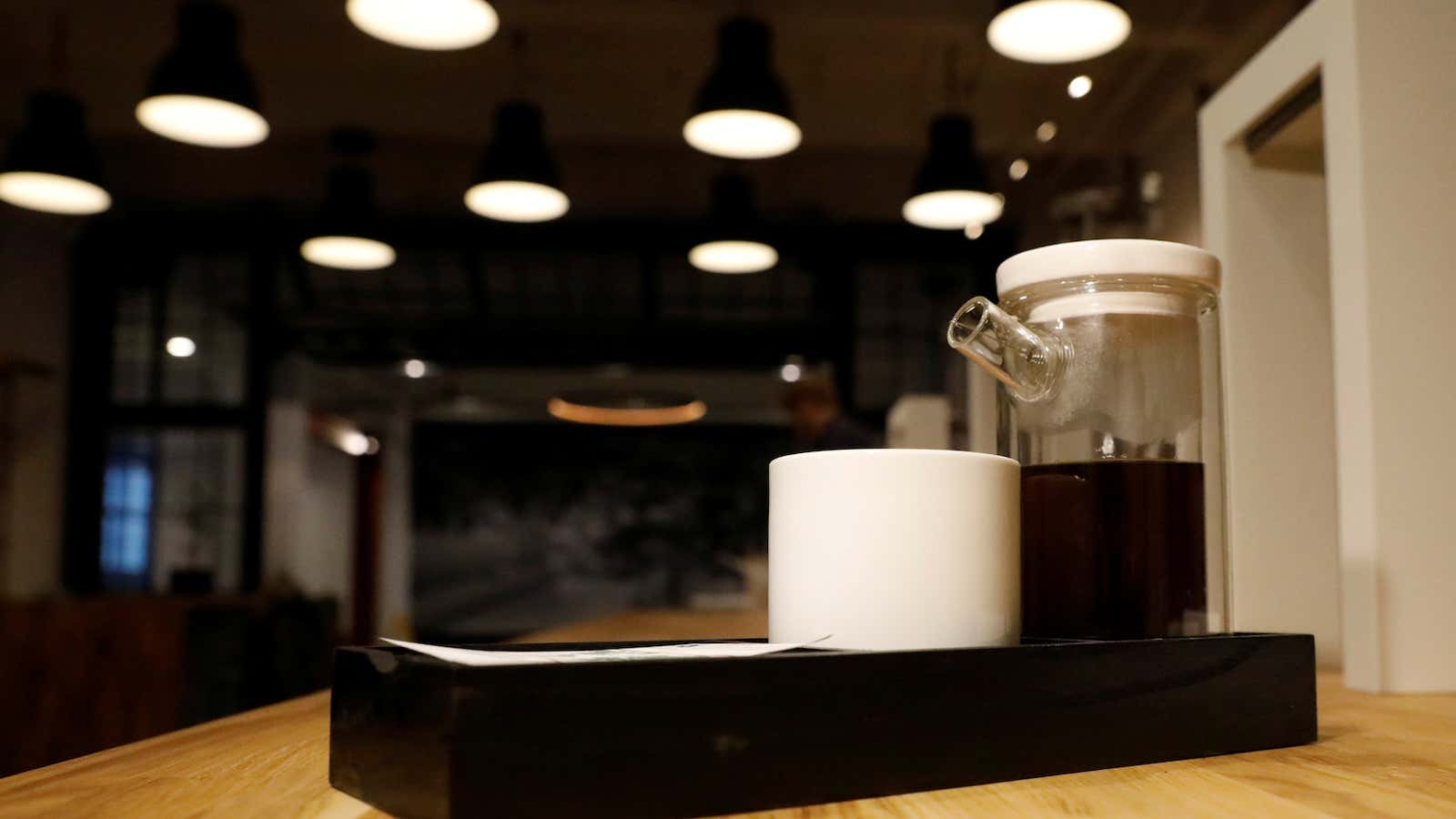McKinsey and Co., the esteemed management consultants who charge a fortune to advise something like 90 of the top 100 companies worldwide (paywall) on what to do with their businesses, now wants to make things more beautiful.
McKinsey Design launched this week in New York, which will provide “creative solutions” to complement the strategy advice for which the firm is known, according to the Wall Street Journal (paywall). The new outfit comes from two independent design firms, Lunar in San Francisco and Veryday in Stockholm, it acquired. (Competitors Accenture and Boston Consulting Group have also bought design firms in the past couple of years, making it an industry trend.)
Ben Sheppard, one of the London-based heads of the new McKinsey division, has authored research that looked at the “business value of design,” examining 300 publicly listed companies over a five-year period in multiple countries and industries. The study collected two million pieces of financial data and recorded 100,000 “design actions” to create an index that rates companies by how strong they are at design and link that with their financial performance.
“The design community will say, ‘We’ve been extolling these ideas for decades,’ but this is for business leadership,” Sheppard told the Journal. “Out of hundreds of actions we measured, it comes up with 12 to improve performance.” And McKinsey will tell you how to apply those 12 to your business—for a small fee, of course.
Call it the Apple-ification of the world. A greater premium is placed on how things look and feel in a more competitive consumer environment driven by the desires of millennials who grew up with beautifully chamfered iPhones (paywall) and take aesthetics into account in all buying decisions. You can see that with Microsoft’s pivot toward creating its own line of products or the “Brooklynification” of every coffee shop around the world.
This is also quite a change of the culture of management consultants. Duff McDonald, author of the The Firm: The Story of McKinsey and its Secret Influence on American Business, told Forbes the stereotype of a McKinsey worker when Marvin Bower, the man credited with transforming the place into a lean consultancy, was around:
Until not so long ago, a majority of McKinsey consultants had Harvard Business School degrees. In Bower’s time and beyond, the firm had a very New England WASP elite image. You could tell a McKinsey man from a mile away: he was the good-looking guy who belonged to the right club. The type who had not only gone to the right schools, but had been the student council president, or captain of the football team. A consultant at a rival firm even suspected they used to hire taller people.
Get ready to see more T-shirt-and-jeans-wearing types with perfect tortoiseshell glasses walking around with the suits the next time McKinsey comes to your company to tell you how many people to fire.
